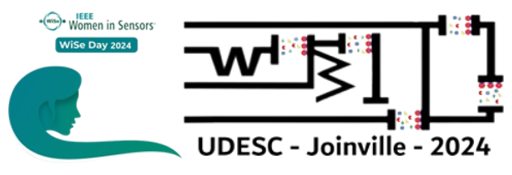Lectures & Tutorials
Lectures

André Moraes Nicola, MD, PhD
andre.nicola@gmail.com
Universidade de Brasília
Biography
Graduated in Medicine at the University of Brasília (UnB) in 2006 and got a PhD in Molecular Pathology from the same institution in 2011. I also have two postdoctoral experiences, at the Albert Einstein College of Medicine (New York, USA) and the Johns Hopkins University (Baltimore, USA). I am presently a professor at UnB, where I teach undergraduate and graduate courses on Immunology. I also lead a group that does research in infectious diseases, especially severe diseases caused by fungi. Among our research interests are: a) how do microbes cause disease in humans and other animals; b) how do human and other animal hosts respond to infections; and c) development of new tools for the diagnosis and treatment of human infectious diseases.
Lecture
Antibodies as probes for infectious diseases diagnostics
09:00-10:00
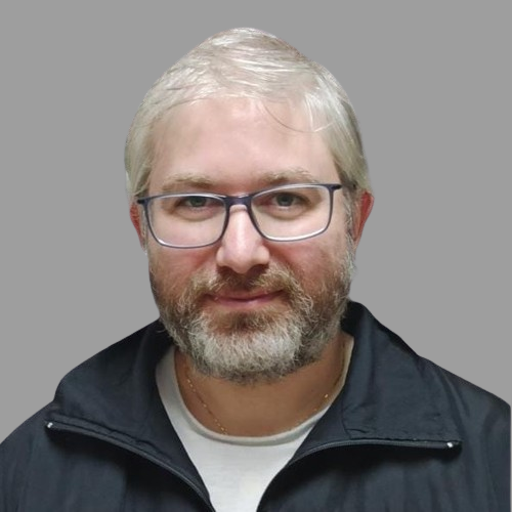
Dr. José Pedro M. Serbena
joseserbena@ufpr.br
Universidade Federal do Paraná
Biography
Graduated in Physics at Universidade Federal do Paraná (UFPR) in 2003, received the M.Sc. (2005) and PhD. (2009) in Physics at the same institution, with a sandwich period in Changchung Institute of Applied Chemistry (China), followed by a post doctoral in Universidade Federal de Santa Catarina (UFSC) (2010). From 2010 to 2011 was professor at Universidade Tecnológica Federal do Paraná (UTFPR), Campus Ponta Grossa. Currently is associate professor at UFPR. He leads the Group of Organic Optoelectronic Devices (GOOD). His research interests include fundamental aspects of charge carrier transport and injection in organic semiconductors and applications of organic semiconductors and nanostructures in optoelectronic devices as, for example, electrolyte-gated field effect transistors, organic electrochemical transistors, nanostructured gas sensors, organic thermoelectric devices, and organic magnetoresistance.
Lecture
Volatile Organic Compound Detection with Nanostructure-Embedded Resistive Sensors
13:30-14:30
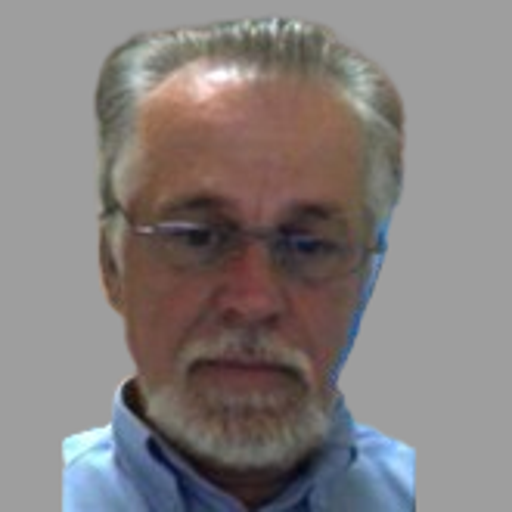
Dr. Hypolito José Kalinowski
@ Universidade Federal Fluminense
Biography
Hypolito José Kalinowski was born in Curitiba, Brazil, in 1952. Hia graduation in Physics from the Universidade Federal do Paraná just turned the Gold Jubilee. He received the M.Sc. and Ph.D. degrees from Pontifícia Universidade Católica do Rio de Janeiro, Brazil, followed by a post doctoral term within the Cento Studi e Laboratori Telecomunicazioni (CSELT), Torino, Italy. After working at the Universidade Federal Fluminense (UFF) he moved to the Federal University of Technology – Paraná (UTFPR). He spent a sabbatical year at the University of Aveiro and Telecommunications Institute, Portugal (2006/2007). He was also a Senior Fellow of the Abdus Salam International Centre for Theoretical Physics, Trieste, Italy from 2008 to 2013. From 2027 on, after retirement from UTFPR, he started a Cathedra position again at UFF, Niterói. His research interests include optical fiber sensors with focus on Bragg gratings for industrial and biomedical sensors, fibre devices for optical communications and femtosecond engraved Bragg waveguides in optically active crystals. Dr. Kalinowski was the President of the Brazilian Society for Microwaves and Optoelectronics (SBMO) from 1996 to 1998, and he served a three-year term as a member of the Advisory Panel on Electrical Engineering of the Brazilian Research Council (CNPq). Currently he chairs the national evaluation board of post graduate programs in Electrical Engineering at CAPES. He is member of the SBMO, SPIE and OPTICA.
Lecture
Fibre optic sensors in biomechanics: brazilian retrospective
09:00-10:00
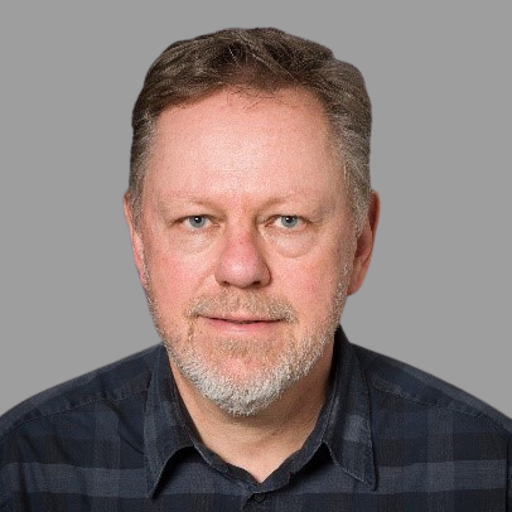
Dr. Ørjan Grottem Martinsen
o.g.martinsen@fys.uio.no
University of Oslo
Biography
Ørjan G. Martinsen is a professor of physics and electronics at the Department of Physics, University of Oslo, Norway. He is also a senior researcher at the Oslo University Hospital. Martinsen is head of the “Oslo Bioimpedance and Medical Technology Group”, where the main focus is on electrical bioimpedance theory and applications within medicine. He is the co-author of the textbook “Bioimpedance and Bioelectricity Basics”, where the 4th edition was published last summer, and he is the founding editor-in-chief of the Journal of Electrical Bioimpedance.
Lecture
Four-electrode measurement of transfer bioimpedance
13:30-14:30
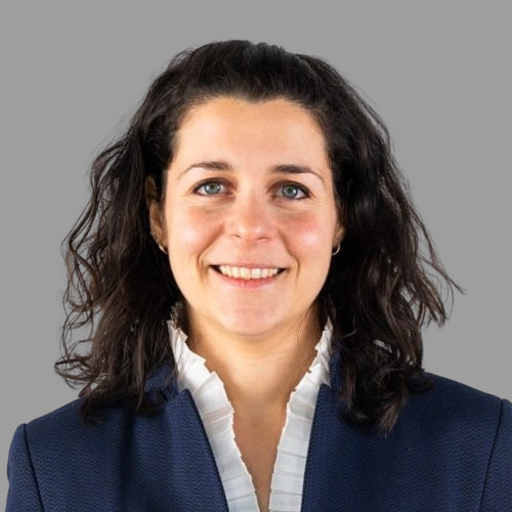
Dra. Paola Saccomandi
@ Politecnico di Milano
Biography
Paola Saccomandi obtained the PhD in Biomedical Engineering in 2014 from Università Campus Bio-Medico di Roma. Currently, she is Associate Professor at the Department of Mechanical Engineering of Politecnico di Milano. In 2021 she obtained the National Academic Qualification as Full Professor (Measurements). She is now the Head of Laboratory of Measurements for Biomedical Applications (10+ members), working on the development of light-based approaches for hyperthermal tumor treatment and monitoring, quasi-distributed fiber optic sensors and imaging, thermal and biomechanical measurements. Currently, she is the PI of 2 European Research Council (ERC) projects and 2 national grants, supervisor of 1 Marie Skłodowska-Curie Actions (MSCA) postdoctoral fellowship, and task leader of other 4 national grants. Presently, Paola is the Chair of Women in Sensors (WiSe) Committee, the Chair of IEEE EMBS Technical Community on Therapeutic Systems & Technologies, and the vice-chair of IEEE Women in Engineering (WIE)-Italy Affinity Group. In 2018, she was co-founder and officer of the IEEE Italy Sensors Chapter. She is IEEE senior member, and SPIE life member. She is Distinguished Lecturer for IEEE Sensors Council (2024-2026). She served as Technical Program Chair for IEEE MetroInd4.0&IoT 2020 and 2021, and MeMeA 2021. She was recipient of several awards, including Premio Italia Giovane. She co-authored more than 200 papers and books, with over 4900 citations and h-index of 38 (Google Scholar).
Lecture
Fiber optic sensors for healthcare applications: fundamentals, applications and frontiers
09:00-10:00

Dra. Gabriela Byzynski Soares
@ NanoChemTech Solutions
Biography
Researcher by love and profession, Manager by role and passionate about Innovation! With 16 years of experience in Research, Development and Innovation, he has a Master’s and Doctorate in Chemistry, with an emphasis on Analytical Chemistry and Materials Chemistry. He has 20 scientific articles published in indexed international journals. In 2018 I started a new journey in the area of scientific entrepreneurship, carrying out various training sessions, hackathons and lectures on how science can be the basis for new businesses and markets. As Co-Founder and Administrative Manager of HealthTech NanoChemTech Solutions, she also works as responsible for R, D&I in the Chemistry area, with experience in promoting research agencies such as investments in Research and Development. Acquire knowledge in the area of microbiology applied to health and the environment, as well as physical and chemical products with antimicrobial action. Currently, he is interested in Agile Administrative Management, Management, Validation of Processes and new Products, Innovation and Protection between Hardware/Software.
Lecture
Use of Biosensors for Monitoring Pathogenic Microorganisms and Prevention of Infection in Hospital Environments
10:30-11:30

Dr. Eden Morales-Narváez
eden@fata.unam.mx
Universidad Nacional Autónoma de México
Biography
Currently the Head of the Biophotonic Nanosensors Laboratory at the Center for Applied Physics and Advanced Technology of the National Autonomous University of Mexico (Universidad Nacional Autónoma de México, UNAM). He received a degree in bionics engineering from the National Polytechnic Institute of Mexico in 2006 and his Ph.D. in biomedical engineering from the Polytechnic University of Catalonia, Spain in 2013. He was a Postdoctoral Researcher at Catalan Institute of Nanoscience and Nanotechnology and started his independent career in late 2016 at the Center for Research in Optics (Mexico). His research is focused on the development and application of novel (bio)sensing platforms, particularly using nanophotonics at the cutting-edge. In general, he is interested in green technologies, smart materials, integrated biosensors, wearable devices, flexible photonics, and healthcare 4.0/5.0. He is a member of several editorial boards including JPhys: Photonics, ACS Analytical Chemistry, Biosensors & Bioelectronics X and Green Analytical Chemistry, among others. As a winner of the 2020 JPhys Photonics Early Career Award, he has also been recognized as an Emerging Leader. He was also selected as a 2023 Rising Star by ACS Measurement Science Au.
Lecture
Nanophotonics for the next generation of (bio)sensors
14:00-15:00
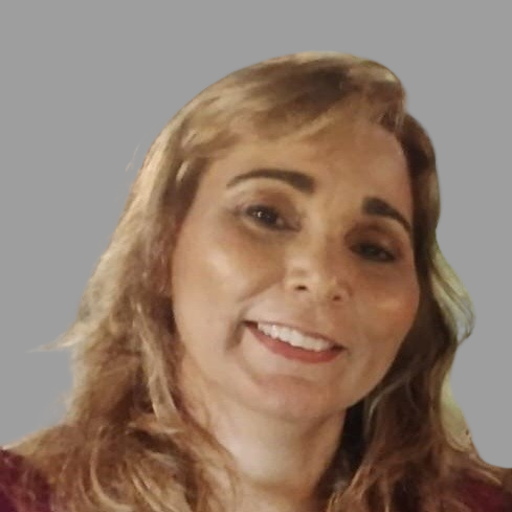
Dra. Rosa Amalia Fireman Dutra
@ Universidade Federal de Pernambuco
Biography
Associate Professor at the Federal University of Pernambuco in the Department of Biomedical Engineering, National Council for Scientific and Technological Development (CNPq) Research Fellow – Level 1D. Deputy Coordinator of the Renorbio/UFPE Program, Coordinated the Postgraduate Program in Biomedical Engineering since its implementation (2012-2016), Deputy Coordinator (2016-2020) Pro-tempore Coordinator 2020 and Permanent Member of the Biological Sciences and Materials Sciences Program. Senior Visiting Professor at Swansea University, UK, CAPES-PRINT Program, from October to December 2023. She was a professor at UPE (1991-2010), actively participating in the area of academic research and was an advisory member of the Postgraduate and Research Chamber, Postgraduate and Research Sector Coordinator and Member of the UPE Technological Innovation nucleus. She has a degree in Electronic Engineering from UFPE, a Master’s degree in Biomedical Engineering, a PhD and post-doctorate in the area of biosensors applied to healthcare. Currently, he is carrying out research in the area of bioelectronics, comprising the following topics: biosensors, nanomaterials, biomimetic sensors, surface modification, functionalization of nanomaterials, interaction of biomolecules and new acoustic, optical and electrochemical transducer technologies, focusing on the development of point- of-care for health diagnosis. Reviewer of the journals Biosensors Biolectronics, Sensors Actuactor B: Chemical, Talanta, Transactions on Biomedical Engineering, Applied Surface Science, Sensors, Analytical Chemistry, among others. She is a mentor at DiagAgil Soluções para Diagnóstico, a company incubated at the UFPE Technological Center since 2020.
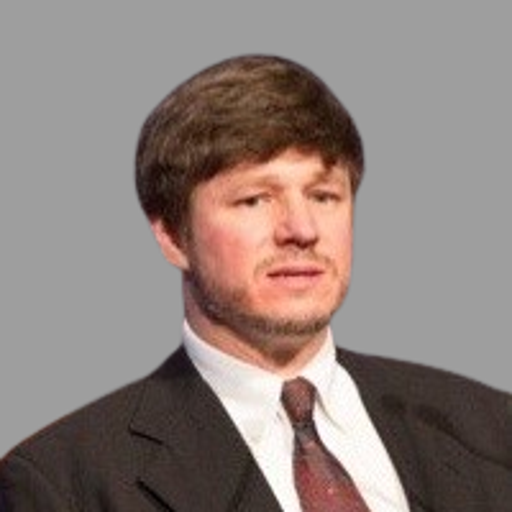
Dr. Marlin Keith Cox
mkcox@certifiedqualityfoods
CEO Food Analytics
Biography
Primary research interest focuses on the physiological aspects of growth, development, and bioenergetics (quantification and allocation of energy). I also have a background of creating bio-assessment models that are calculated from fish and invertebrate population counts as well as physiological and energetic parameters of individual organisms. These models are used to detect environmental perturbations and human actions in regard to fish, invertebrate, community and overall ecological health. My graduate program was devoted to the study of fish bioenergetics and physiology; and scaling these parameters from individual to population aspects. In this, I have developed, innovated and published the first work on fish using bioelectrical impedance analysis (BIA) to measure compositional components that include fat, protein, water, dry, ash, and energy content; and relating these measures with condition. Non-lethal estimation of body composition using bioelectrical impedance analysis in lower vertebrates will permit increased precision in energy flow and proximate composition studies as well as permit the study of community energetics and condition on spatial and temporal scales not previously possible. Co-founder and Chief Scientific Officer of CQ Foods, a company that manufactures electronic devices that measure, monitor, store and auto-analyze metrics that help monitor different aspects of growth of aquaculture species. The same system can be used to monitor mariculture facilities. Currently, the data pathway provides real-time analysis of different parameters including GPS, temperature, length, weight and body composition. The pathway will be able to accommodate any other metrics such as salinity, pH, conductivity and depth. Personally, Dr. Cox has over 20 years of experience working with organisms including plants and animals that vary in size from whales to bacteria.
Lecture
Commercialization of Electrical Impedance Spectroscopy for Food Quality: A review
09:00-10:00
Tutorials
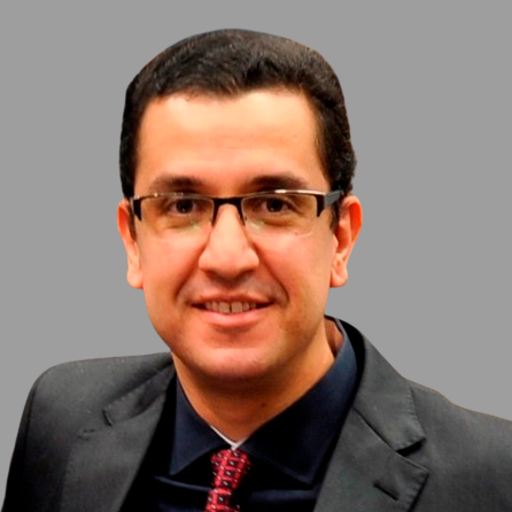
Dr. Aleksander Sade Paterno
aleksander.paterno@udesc.br
Universidade do Estado de Santa Catarina
Biography
Aleksander Sade Paterno received the B.Sc. degree in electronics and telecommunications engineering and the Ph.D. degree from the Federal University of Technology–Paraná, Curitiba, Brazil. He is currently an Associate Professor with the Electrical Engineering Department with the Santa Catarina State University, Joinville, Brazil. His current research interests include fiber optic sensors and devices with applications mainly in biomedical engineering and industry.
Tutorial
Instrumentation and Functionalization of Optical Fiber Biosensors: A Comprehensive Workshop
14:30-15:30
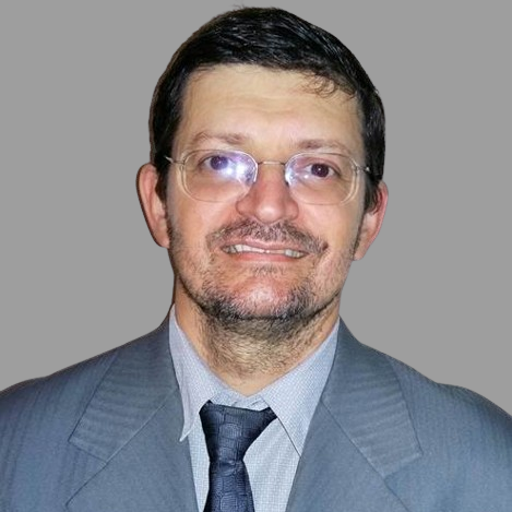
Dr. Pedro Bertemes Filho
pedro.bertemes@udesc.br
Universidade do Estado de Santa Catarina
Biography
Graduated in Electrical Engineering in 1995 at the State University of Santa Catarina and PhD in Medical Physics at the University of Sheffield. Awarded by Fulbright at Dartmouth College and visiting researcher in the University of Ljubljana. Titular Professor at UDESC since 2004, lecturing electronic instrumentation, sensors and transducers, introduction on biomedical engineering and coordinating research groups in biomedical engineering and electrical bioimpedance. Senior IEEE member since 2020. Reviewer of more than 12 international journals. Secretary of the ISEBI. International lectures in renowned Universities, such as Uruguay, Ljubljana, Sheffield, Copenhagen and Mexico. Areas of research interest are focused on electrical bioimpedance and bioinstrumentation, Biosensor and e-Health. Edited international books, such as “Bioimpedance in Biomedical Applications and Research” and “Medicine-Based Informatics and Engineering” by Springer.
Tutorial
Bioimpedance-Based System for Cancer Diagnosis: Current Advances and Future Perspectives
14:30-15:30

Dr. Euclides Lourenço Chuma
euclides.chuma@ieee.org
University of Campinas
Biography
Professor and Researcher at Unicamp University (2024), Postdoctoral Fellow at Linköping University (2023), Ph.D. in Electrical Engineering from Unicamp (2019), Master’s in Electrical Engineering from Unicamp (2017), Specialist in Network Engineering and Telecommunications Systems from Inatel (2016), Specialist in Project Analysis from Unicamp (2003), and Bachelor’s in Mathematics from Unicamp (2002). Holds 4 patent deposit requests and professional experience as a software and hardware developer in electronics and photonics. IEEE Senior Member (2022). IEEE Impact Creators (2022), President of the IEEE Sensors Council South Brazil Chapter and President of the IEEE Systems Council South Brazil Chapter; IEEE Collabratec Lead Ambassador. Associate Editor of IET Circuits, Devices Systems. Member of the Brazilian Society of Biomedical Engineering, SBFoton Society, Brazilian Society of Microwave and Optoelectronics. Among his areas of expertise include: sensors, artificial intelligence, telecommunications, IoT, healthcare, smart cities.
Tutorial
Terahertz-Based Joint Communication and Sensing for Precision Agriculture
13:30-14:30
Mini-Courses
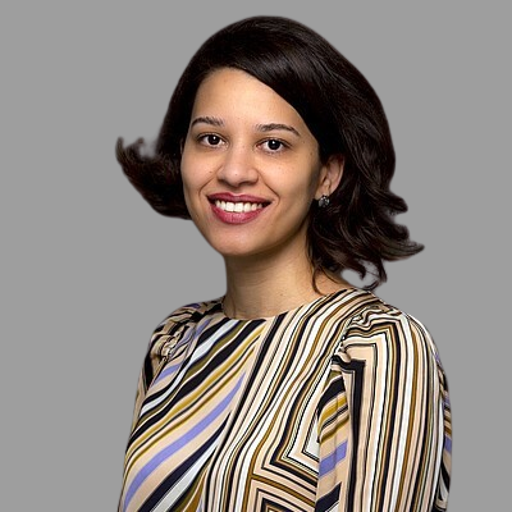
Dra. Cecília de Carvalho Castro e Silva
cecilia.silva@mackenzie.br
Mackenzie Presbyterian University
Biography
Cecília C. C. Silva holds a Ph.D. in Chemistry from the State University of Campinas (Unicamp) (2015) in Brazil, with an internship period at The State University of New Jersey – Rutgers (USA). Since 2016, she has been an assistant professor at Mackenzie Presbyterian University and an associate researcher at MackGraphe – Mackenzie Institute for Research in Graphene and Nanotechnologies, located in São Paulo, Brazil. She served as a visiting professor in the Nanobioelectronics and Biosensors Group at the Catalan Institute of Nanoscience and Nanotechnology (ICN2) in Barcelona, Spain (Feb 2020 to Jun 2021), where she developed graphene-based electrical biosensors for pathogen detection. In 2016, Forbes Brazil included Cecilia Silva in the list “30 Under 30 Brazil,” recognizing her as one of the 30 most talented individuals under 30 years of age. The research group led by Cecilia Silva specializes in the synthesis and functionalization of two-dimensional materials, the development of field-effect transistors, microfabrication, microfluidics, and biosensors.
Course
Laser-Induced Graphene: Affordable Fabrication for Electrochemical Sensors
14:00-16:00
